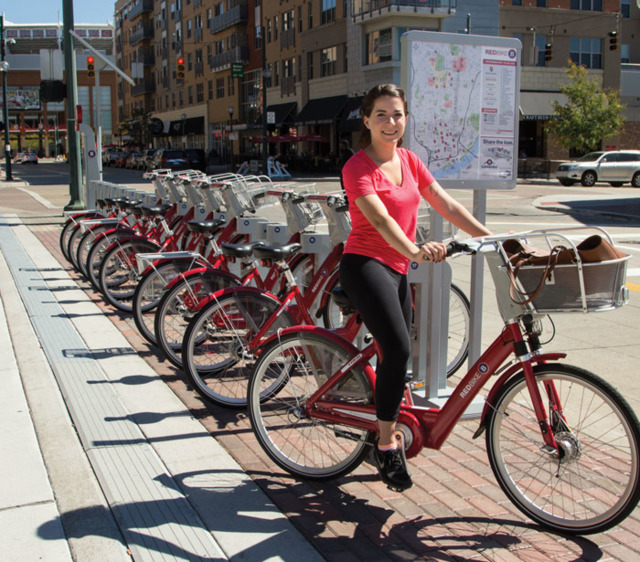Cincinnati Red Bike shut down overnight on March 29 and will remain closed until further notice to help slow the spread of COVID-19 on direction from city officials, according to a news release by the bike share nonprofit.
No jobs will be eliminated by the temporary closure, Red Bike says, though the nonprofit acknowledged the shut down would have "a financial impact."
Red Bike asked patrons in its statement to consider taking Metro or TANK buses to replace the bikes they rent via the bike share. Those buses are currently fare-free, though many routes are running on Saturday schedules. The nonprofit also asked members to continue their memberships if possible.
"We know that many people rely on Red Bike as their primary means of transportation, but we all have to do our part in these trying times," Red Bike Executive Director Jason Barron said in a statement. "We must flatten the curve to slow the spread of this deadly virus and keep our friends and loved ones safe. We completely support the city in their efforts to manage this crisis and keep everyone safe and healthy.”
Red Bike offers 500 bikes at 59 bike share stations across Cincinnati and Northern Kentucky and also offers a membership program called Red Bike Go for lower-income riders.
The novel coronavirus causing COVID-19 has whipped across the globe since it was first discovered during an outbreak in Wuhan, China. Health officials have confirmed 24 cases of the virus in Cincinnati, and the region's first death due to the illness, a 66-year-old woman in Kenton County, was reported last week.
Most cases of COVID-19 are mild. But about 20 percent of cases are severe enough to require hospitalization, and about 5 percent require intensive care. The disease has thus far proven much more dangerous for those over the age of 60, though there are reports of younger people requiring hospitalization after catching it.






